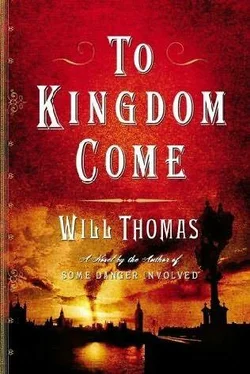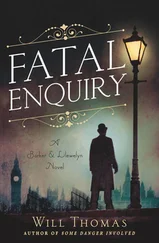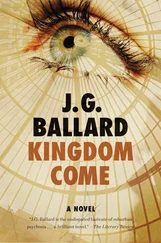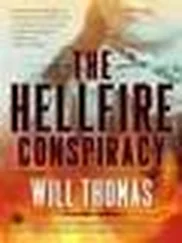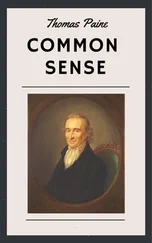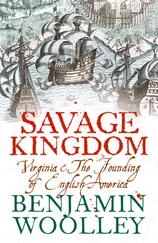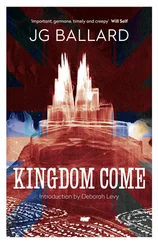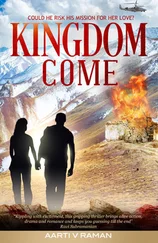Will Thomas - To Kingdom Come
Здесь есть возможность читать онлайн «Will Thomas - To Kingdom Come» весь текст электронной книги совершенно бесплатно (целиком полную версию без сокращений). В некоторых случаях можно слушать аудио, скачать через торрент в формате fb2 и присутствует краткое содержание. Жанр: Исторический детектив, на английском языке. Описание произведения, (предисловие) а так же отзывы посетителей доступны на портале библиотеки ЛибКат.
- Название:To Kingdom Come
- Автор:
- Жанр:
- Год:неизвестен
- ISBN:нет данных
- Рейтинг книги:4 / 5. Голосов: 1
-
Избранное:Добавить в избранное
- Отзывы:
-
Ваша оценка:
- 80
- 1
- 2
- 3
- 4
- 5
To Kingdom Come: краткое содержание, описание и аннотация
Предлагаем к чтению аннотацию, описание, краткое содержание или предисловие (зависит от того, что написал сам автор книги «To Kingdom Come»). Если вы не нашли необходимую информацию о книге — напишите в комментариях, мы постараемся отыскать её.
To Kingdom Come — читать онлайн бесплатно полную книгу (весь текст) целиком
Ниже представлен текст книги, разбитый по страницам. Система сохранения места последней прочитанной страницы, позволяет с удобством читать онлайн бесплатно книгу «To Kingdom Come», без необходимости каждый раз заново искать на чём Вы остановились. Поставьте закладку, и сможете в любой момент перейти на страницу, на которой закончили чтение.
Интервал:
Закладка:
“That was simple enough,” I said, returning to my food.
“I hazarded a guess that Dunleavy would be as fond of spending the Irish-American money as Parnell and that he would choose a hotel close to the station. Keep your wits about you, lad, and do not look around. If Dunleavy is the old campaigner I think he is, he shall send a confederate to watch us. He cannot be certain we are whom we claim to be, but by turning us down, he might have missed a great opportunity. He will alert his associates and have us watched.”
“What shall we do?” I asked.
“We shall eat, and then go to our rooms. We are not tourists here to see Liverpool.”
As we were nearing the end of our meal, a man came in casually and ordered a cup of tea. From the quick glance I caught of him as I summoned a waiter for a new fork, I saw that he was close to thirty with curly hair and a sharp nose over a small mustache.
“Is that the man?” I asked in a low voice.
“Doubtless,” my employer answered. “From where I am seated, I can see that he is missing two fingers, a sure sign of the amateur bomber. Also, he’s looked at us twice since he came in.”
The fellow followed us out of the dining room and up the stairs, staying some distance behind us. When we were safely in our rooms, I heard his footsteps pass a half minute later.
“That was …” I began, but Barker put a finger to his lips. I looked over at the bottom of the door, where a sliver of light shone in from the hall. After a moment’s pause, a flicker of shadow moved across the light.
Still standing in front of the door, my employer pulled back his arm, and then smote the door very close to eye level. I could picture the fellow in the hall with his ear pressed against the other side. I heard feet stagger back and then run swiftly down the hall. Barker wasn’t going to let these fellows think that the prickly van Rhyn was going to be that easy to handle.
11
It was near eleven when they finally appeared at our door. The odor of alcohol that I smelled on Colonel Dunleavy told me our rooms had not been his first stop of the evening, but his associates seemed sober enough. There were two of them, and one was the fellow who had followed us earlier.
“Gentlemen!” Alfred Dunleavy bellowed when we opened the door. “We come bearing gifts.”
I need hardly mention that the gifts were all of the liquid variety. Each of the colonel’s subordinates carried a wooden crate full of bottles, which they set down on the largest table in the room. There was a bottle of schnapps, bottles of Irish and Scotch whiskey, and a dozen bottles of ale. Rather than risk having the whiskey forced on me, I took a Guinness.
“I’ve never been to Liverpool before,” I said. “What’s it like?”
“I believe you’ll find the town has much to recommend it, sir,” the third man spoke up. “It combines the rowdiness of Dublin with the anonymity of London. You’ll feel welcome.”
“I am Johannes van Rhyn,” Barker announced, putting out his hand. “And you are?”
“Eamon O’Casey,” the fellow said, shaking it firmly. “This is Niall Garrity.”
O’Casey was a young, capable-looking chap with a confident manner and an athletic build. He looked like a university student, the kind who takes a first in his studies and has a blue in rowing. As it turned out, that is exactly what he was. He had recently graduated from Trinity in Dublin. With his square jaw and frank, hazel eyes, I could see him succeeding in whatever he undertook, and he must have caught the eye of many a girl in Dublin or in Liverpool, for that matter.
As for Garrity, I noticed right off the missing two fingers. He reminded me of Cassius in Julius Caesar, the one who had “a lean and hungry look.” He looked young enough to be a youth in the eyes of the cabman John Farris. His sharp eyes over a broad arrow of a nose gave him a devilish appearance.
In a moment or two we were all seated, Barker with schnapps, Dunleavy with a full glass of whiskey, Garrity with a bottle of ale. O’Casey, I noticed, was not drinking. I wished I could have emulated his abstinence.
Dunleavy spoke up. “Gentlemen, it was most fortuitous that we should find ourselves at the same hotel, but you must understand that I and my associates are suspicious of coincidences. British agents have attempted to infiltrate our ranks in the past. I wonder if I might prevail upon you to see some identification.”
Barker and I reached into our pockets and handed over our passports. Dunleavy held them out at arm’s length and read them. “You are quite well traveled, Mr. van Rhyn-France, Russia, Italy, Montenegro; in fact, all across eastern Europe. That is quite satisfactory. I wonder, sir, if I may presume upon our new friendship a little further and request that you remove your spectacles?”
A slow smile spread across Barker’s face, the coldest, most lethal smile I’d ever seen him give. “Be careful what you ask for, Herr Colonel. The last fellow who forced me to remove these met with an unfortunate accident. He was trying to light his stove and it exploded. Apparently, something had happened to the valve and it was leaking gas. Killed him and his dog A terrible tragedy. I liked the dog.”
The three Irishmen looked at one another uneasily and silently agreed to let the matter of Barker’s spectacles rest. They turned, instead, to me. Apparently, I was still fair game.
“So, Mr. Penrith, how long have you been working for Mr. van Rhyn?” O’Casey asked.
“Half a year now, I’d say.”
“I take it,” Garrity put in, “that you are something of an explosives expert yourself.”
“He was trained by Mr. Nobel at his factory near Glasgow,” Barker spoke for me. “And I have taught him much of what I know. He is a fast learner, but, then, he has had to be. You see, gentlemen, I have a degenerative ocular disease. I can no longer see the fine measurements on a beaker. Thomas is my eyes now. I cannot do without him.”
“Where are you from?”
“Cardiff, originally. I’ve been living in London.”
Garrity leaned forward in his chair. “What are your politics, Mr. Penrith? How do you feel about the English?”
“My country is no more free than yours, Mr. Garrity. I find calling the Queen’s whelp the Prince of Wales to be the grossest of insults. Anything I can do to relieve them both of power shall be good for my people.”
O’Casey turned to my employer. “You are a very famous figure, Mr. van Rhyn,” he said. “One might almost say legendary. There are a lot of stories about you being passed around among the factions. Is it true, for example, that it was one of your bombs that blew up Czar Alexander the Second three years ago?”
“I was in Russia at the time, but the anarchist responsible was capable enough of building his own bombs. We consulted, but that was all. It was enough, however, to have Czar Alexander the Third’s parliament declare me an enemy of the state and to escort me to the border.”
“I see,” O’Casey said. “And were you really a member of Le Cercle de l’Anarchie, which threatened Louis Napoleon?”
“Monarchies, even such enlightened ones as his, are relics of the Dark Ages, gentlemen,” Barker pontificated. “The sooner they are exterminated, the better for society.”
“You were a member, then.”
“Ja, Herr O’Casey. I was a member.”
“Then you would be sporting the society’s tattoo on your forearm.”
With a sigh, Barker pushed back the sleeve of his jacket and unbuttoned his cuff, exposing the back of his thick forearm. There, a few inches up from the wrist, were three crude black lines, crossing themselves to roughly form the letter A. I had sat with Barker in the steamed heat of his bathhouse many times, but I hadn’t noticed such a mark before. Was it new, or had a former case required him to join that organization?
Читать дальшеИнтервал:
Закладка:
Похожие книги на «To Kingdom Come»
Представляем Вашему вниманию похожие книги на «To Kingdom Come» списком для выбора. Мы отобрали схожую по названию и смыслу литературу в надежде предоставить читателям больше вариантов отыскать новые, интересные, ещё непрочитанные произведения.
Обсуждение, отзывы о книге «To Kingdom Come» и просто собственные мнения читателей. Оставьте ваши комментарии, напишите, что Вы думаете о произведении, его смысле или главных героях. Укажите что конкретно понравилось, а что нет, и почему Вы так считаете.
